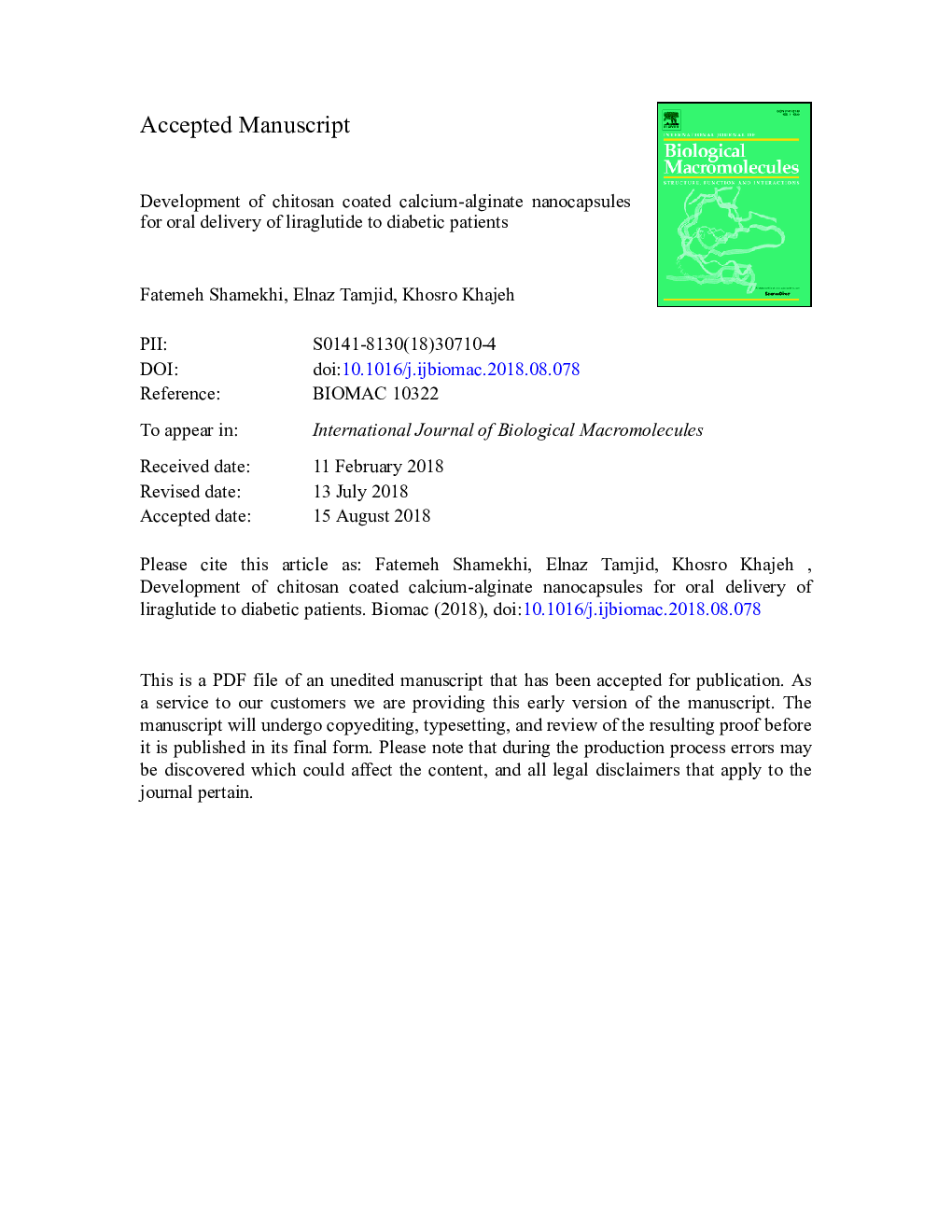| Article ID | Journal | Published Year | Pages | File Type |
|---|---|---|---|---|
| 10129148 | International Journal of Biological Macromolecules | 2018 | 44 Pages |
Abstract
Chitosan coated calcium-alginate nanocapsules were developed for oral sustained delivery of liraglutide. The effect of coating components including sodium alginate, calcium chloride, and chitosan concentrations on the particle size was studied based on response surface methodology. The beads were characterized by dynamic light scattering, scanning and transmission electron microscopy as well as Fourier transform infrared spectroscopy. It was shown that the diameter of the formed beads was most dependent on the encapsulation technique and alginate concentration. SEM revealed spherical and smooth particles of up to 100â¯nm diameter for the optimum composition of alginate 0.5%, chitosan 0.5% and calcium chloride 0.5% in the volume ratio of 3:1:1. The resulting bead formulation had a loading efficiency of 92.5% and loading capacity of 54.16%. The nanocapsules exhibited stability of 92.4% and 72.3% over freeze drying and subsequent 60â¯days storage at 4â¯Â°C, respectively. In-vitro release studies in simulated gastrointestinal conditions were carried out in a sequential technique and the amount of drug release was found to be 59.1% after 6â¯h. The results of this study demonstrated that chitosan coated calcium-alginate nanocapsules hold promise as a potential natural biodegradable polymer-based oral carrier of liraglutide for better management of diabetes.
Related Topics
Life Sciences
Biochemistry, Genetics and Molecular Biology
Biochemistry
Authors
Fatemeh Shamekhi, Elnaz Tamjid, Khosro Khajeh,
